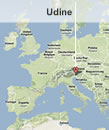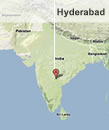“Hic sunt leones”, when travelling meant exploring
In Udine, an exhibition devoted to the Friulians of the 19th and 20th centuries who took part in adventures and scientific expeditions
The experience of travel as knowledge and sensory enrichment is at the centre of the exhibition “Hic sunt leones. Esploratori, geografi e viaggiatori tra Ottocento e Novecento. Dal Friuli alla conoscenza dei Paesi extraeuropei”, (“Hic sunt leones. Explorers, geographers and travelers in the 19th and 20th centuries. From Friuli to the knowledge of countries beyond Europe”) which runs from 11th November 2011 to 15th April 2012 in Udine, in the former church of San Francesco.
The exhibition addresses three main themes.
The introductory section returns to the time when, between the nineteenth and twentieth centuries, when travel required long and often difficult organization. The preparation included not only finding the most suitable equipment but also studying the available literature and maps. To help recreate these sensations, alongside the projections and multimedia workstations, you can see tools, books, maps and objects used by travelers and explorers.
The core of the exhibition is dedicated to the aspect of knowledge, retracing, in chronological order, the most important undertakings involving people from Friuli in the Americas, Asia and Africa. Among the characters encountered are Blessed Odorico of Pordenone and other lesser-known religious men who explored and told tales from China; Pietro Savorgnan di Brazza, who led three expeditions to the Congo, together with his brother Giacomo and a friend Attilio Pecile, who, in his attitude towards the people of Africa, is often referred to as a positive example in the controversial period of colonialism.
There then comes the phase of travel for scientific purposes, organized by geographical societies. Among the names of geographers, geologists, ethnographers, linguists, biologists and naturalists taking part that come to the fore include Renato Biasutti, Lodovico di Caporiacco, Giovanni Battista De Gasperi, Ardito Desio, Egidio Feruglio, Giuseppe Gentili, Michele Gortani, Giovanni and Olinto Marinelli, Giuseppe Ricchieri and Luigi Pio Tessitori.
The final segment, entitled “Verso un nuovo mondo”, (“Towards a new world”) focuses on meeting “the other” through the many different elements – art, literature, music, cinema, cuisine – that constitute a culture and aims to offer food for thought on current trade in a system that is changing under the pressure of globalization.
Source: culturaitalia.beniculturali.it








